ShuckedLife on a New England Oyster Farm
Bill Buford’s Heat meets Phoebe Damrosch’s Service Included in this unique blend of personal narrative, food miscellany, and history
Erin Byers Murray is a Boston area journalist, specializing in food and wine writing. Most recently, she was the Boston editor for DailyCandy.com. Her work as been published in the Boston Globe, Food and Wine, Boston Magazine, Bon Appetit, and many more.
In 2009 Erin Byers Murray opted out of her on-line editing job in favor of working outdoors year round at an oyster farm. She chronicled her experiences in Shucked. Currently the Managing Editor of Nashville Lifestyles Magazine Erin recently talked to Booksaboutfood.com about her book, chainsaws and any lingering effects from her time out on the water.
Booksaboutfood.com (BAF): Where were you in your life when this idea came to you?
Erin: I worked at magazines mostly. I was at Boston magazine for probably five years and then jumped over to online and went to a website called DailyCandy.com and I was an editor for them for a while. The direction I was heading in was sort of lifestyle magazine or online editor and was enjoying that very much, but was also, as a writer, looking for some deeper projects and things that I could really sink my teeth into and the writing I was doing 150-word blips about handbags and what-not, so I started getting away from what I really wanted to be doing, so I started doing some food writing. That was what really kind of drew me in.
I ended up going to culinary school for a little while and was actually in culinary school part-time while I was working, finished that program, and that was really not to become a chef or anything but really just to kind of learn the language of food. I finished that and really started thinking, “OK, what am I going to do next?” Also, it was a little bit like I wasn’t very satisfied in that role and was just looking for change in general. That was about the same time that I met the people behind Island Creek and they brought me on a tour of the farm. Because of the tour and just kind of was fascinated by this way of life and said, “How do I get to get to know this better and understand this deeper?”
From that day, I cooked up a plan to leave my job and go work there for them because the trick of it was they farm 365 days a year. I was fascinated with this concept … because I went out in the middle of August and I was really fascinated by this idea that they were out there in January in the middle of a New England winter on the bay when it was frozen, pulling out chainsaws to be able to harvest their oysters. I said to them, “That’s what I really want to see.” They said, “Well, you can come back in January,” and I said, “No, I really just want to work through it.”
I kind of came up with the plan. It was one of those like, “In my wildest dreams, this could happen.” I kept talking about it and ended up talking to my husband about it and really started putting a plan on paper and the idea really was just to take a break from my world and go experience something completely different. I obviously was thinking of a project to write around it and I thought maybe a series of magazine articles or something along those lines, but the more … the book kind of came along later in the process. I knew that if I did this, I would be able to write about something and really know it front to back, so that was how it started.
BAF: Did you get to use the chainsaw?
Erin: I never did! I got to use a lot of big equipment, but the two winters I was there it was mild enough that we never had to. I think the one time we did have ice, we were able to chop it up with the propeller.
BAF: You do sound realistic about it because you were aware of the chainsaws and the ice and other aspects of the job.
Erin: Exactly. That’s it, I think. I knew going into it was that it would be hard work and backbreaking and something I’d never done before. It would totally take me out of my comfort zone. When you face that reality, it suddenly becomes a very different beast and sometimes it seems like you’re never going to finish or you’re never going to make it to the next day because you’re just going to want to stay in bed and not go back. I think that I knew going into it that it was going to be really difficult, but I also knew there would be rewards to it and no matter what, I would get through the year and walk away having experienced something that I normally never would have been able to.
BAF: Was any of that intimidating?
Erin: Yes and no. My big thing was boats. I did not know much about boats and that was intimidating because I was put onto these vessels and told to steer them, and so there was this great moment where of course I’m just taking … we worked out on a barge in the middle of the day and, of course, the problem being that there are no facilities out there, so we would end up going in, taking bathroom breaks a couple times a day. Being one of the only women for a short period of time, I was kind of on my own, so I would take the boat into the shore, go grab coffee for everyone, and come back out.
I grabbed the keys one day, jumped on the boat, was heading in to use the facilities, and the motor died. I got stuck out there just drifting and I, of course, left my phone on the barge. It was just one of those panic moments, but managed to actually get myself tied up to another boat and they kind of saw me and what was happening and they ended up calling for help. That was one of those moments where it was literally sink or swim. You just do it.
BAF: How far was the barge from shore?
Erin: Probably about a football field or two, but I started going the opposite way, out to sea. Which would have been pretty spectacular, whole other story!
BAF: Do you have any moments of doubt when you’re wondering if you could really do it for the year?
Erin: That came pretty early on, probably like six or eight weeks in. It was just one of those … it was a miserable … the weather, being outside, being on my feet, being sore and completely broken down in terms of physically. There were a series of things that I think I kind of combined into one scene in the book but basically had this moment of breakdown and said, “I’m not going back.”
It was right in the middle of 2009, so 200 the crash had happened and all of my friends in media were suddenly really scared for their jobs, so I did get a series of emails in the course of a week of about three people who had just lost their jobs including the place I had just come from. I had a couple of conversations with them and just listening to that and listening to what was happening on that side of the world and understanding, not that I couldn’t go back, but it was going to be really hard to go back. Not only to face that music of I gave up after six or eight weeks, but also to say, “No, this is a little bit of the universe telling me I’m headed in the right direction. I just need to stick with it.”
BAF: It’s almost that you ‘can’t go home again’.
Erin: Yeah, exactly. That was my turning point because I started having some really good days and started to really appreciate what I had had … the perks of it. The hard work was actually paying off.
BAF: Any lingering effects in the sense of do you have a vegetable garden? Do you grow things now? Or do you fish?
Erin: We just finally have a yard, but yeah, my deck right now is kind of overflowing with tomatoes and herbs and whatever else I can get my hands on. One of the things about moving here is … it was available in Boston, too, but really there are just so many opportunities to actually work in gardens and farms here, for volunteer opportunities or just helping people out, so I worked a little bit in that field and hoping to do more of that because it really does … (Nashvillle)being landlocked, obviously I can’t do much with water, but in terms of growing food and understanding the beginning to end process is still in my blood a little bit.
BAF: Were you an oyster fan before going into this?
Erin: I loved them. I didn’t know much about them. I started eating them when I was a kid, probably when I was eight or nine, but had mostly enjoyed them doused in cocktail sauce and horseradish, and had tried different varieties, but not really knowing what I was tasting. The appreciation obviously kind of just blew up from there. I still am fascinated every time I get to sit down and order six different varieties at one sitting and taste them all together. I love that experience. That brings me right back to the farm phase.
BAF: What are you up to now?
Erin: At the moment, I’m actually working on a cookbook with a chef that is up in Boston, and it’s a New England cookbook. He’s a very … his roots are all in Maine and has a lot of lobster-men in the family and he’s a very seafood heavy cook, but he is a chef at the Island Creek Oyster Bar which the farm opened right as I was finishing up. He and I are collaborating on a book that is due any day now.
“While most books about oysters tell people what they want to hear, Shucked tells it like it is: the frigid winter days on the water with hands like popsicles, the backbreaking work, the anxiety of nurturing thousands of dollars’ worth of oyster seed, the hard-partying nights. Erin Byers Murray captures the seasonal rhythms of the New England coast and the romance of one exceptional company’s efforts to coax great food from the sea. You’ll never take an oyster for granted again.”
–Rowan Jacobsen, author of A Geography of Oysters
“Part adventure, part memoir, part culinary awakening, Erin Byers Murray’s rite of passage from novice to connoisseur takes us on a behind-the-scenes tour of the world of the oyster. On the way, she gives us pearls of wisdom and wit–both served up on the half shell. Cocktail sauce is optional but don’t miss this book.”
— Christopher White, author of Skipjack: The Story of America’s Last Sailing Oystermen
“Part of the book’s charm is following Murray through the process of becoming aware of her surroundings in working directly with an edible product. Readers who enjoy Linda Greenlaw’s writing…will appreciate Murray’s offering of just enough information to allow them to become knowledgeable in all things oyster without overdoing it. …Murray’s portrayal of her personal response to life’s changes and challenges will hold readers’ interest. An entertaining and informative firsthand experience of the locavore movement.”
–Library Journal
“Murray’s own love of food and food writing informs the narrative, and she skillfully dramatizes the scenes of summertime sowing and depicts her many colorful co-workers. Murray eschews poetic waxing on her subject and focuses closely on the action and the hard, hard work of farming, closing each chapter with a broad range of oyster recipes.”
–Publishers Weekly
“…a new understanding of locavorism and an appreciation for tradition.”
–-The Sacramento Bee


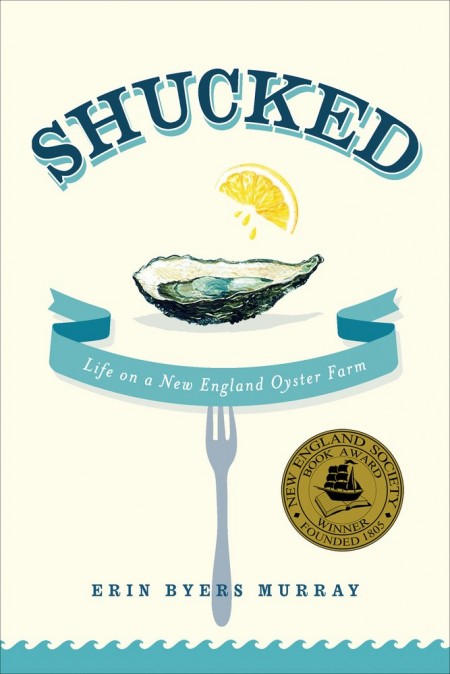


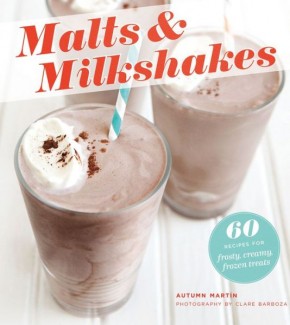
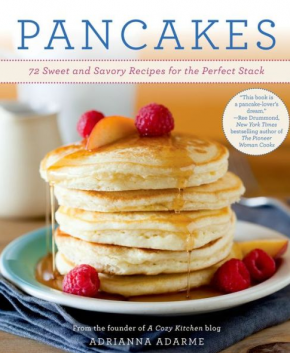
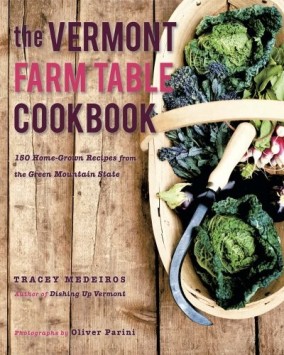
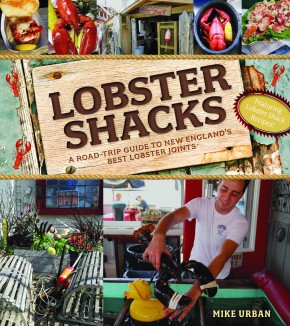
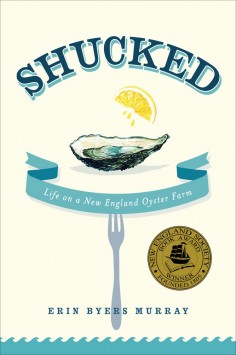

Leave a Reply